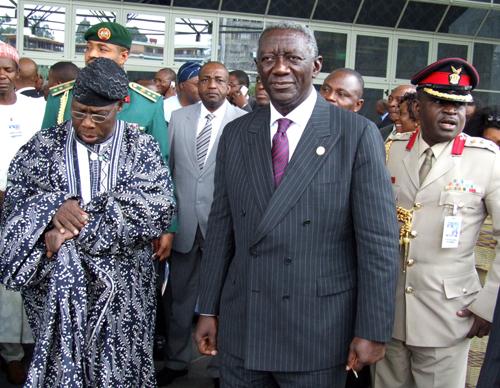Ghana to head African Union
Jan 30, 2007
Last updated on May 12, 2016 at 07:26 a.m.
ADDIS ABABA, Ethiopia – The African Union chose Ghana to head the 53-member bloc Monday, turning aside Sudan’s bid for the second year in a row because of the worsening bloodshed in Darfur.
U.N. Secretary-General Ban Ki-moon had opened the summit with a call on African leaders to end the deadlock created by Sudan’s refusal to allow U.N. peacekeepers into the violence-wracked region in western Sudan.
Ban later said he and Sudanese President Omar al-Bashir agreed “to accelerate joint African Union-United Nations efforts for the political process and the preparation for a peacekeeping mission.”
Late Monday in Khartoum, Sudanese Foreign Ministry spokesman Ali Sadiq said his country had agreed to cooperate on a “hybrid force” for Darfur, including U.N. troops, although final figures were not set.
Get The Daily Illini in your inbox!
Al-Bashir has opposed a U.N. Security Council resolution that calls for some 22,000 U.N. peacekeepers to replace or absorb an African force. The AU has 7,000 peacekeepers struggling to end the fighting.
Sudan came under criticism from Nobel laureate Desmond Tutu, and an aid group said it was pulling out of Darfur because it was unsafe.
Sudanese leaders were adamant that they deserved the rotating chairmanship, but international organizations opposed it, accusing the Sudanese government of taking part in the conflict in Darfur. Rebel leaders in the Sudanese region have said they would stop considering the AU peacekeeping mission as an honest broker there if Sudan was selected.
“By consensus vote, President (John) Kufuor of Ghana has been elected to the presidency of the African Union,” Alpha Oumar Konare, the AU’s chief executive, told reporters in the Ethiopian capital, Addis Ababa.
Sudan had pushed to obtain the post at last year’s summit, which it hosted, but African leaders selected Republic of Congo’s president in a compromise deal in which he would hold it for a year and then hand it over to al-Bashir. But the deal hinged on Sudan demonstrating progress in bringing peace to Darfur. Instead of calming, Darfur’s violence in recent months has spilled into neighboring Chad and Central African Republic.






